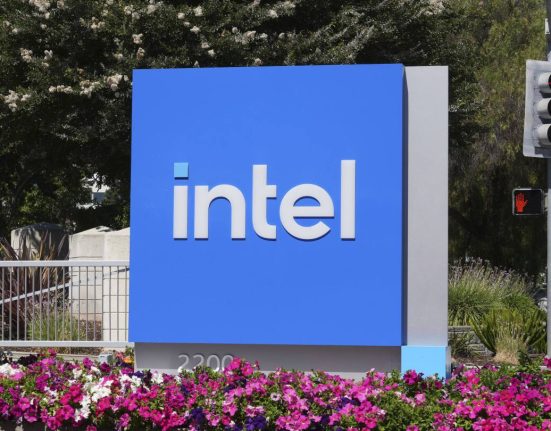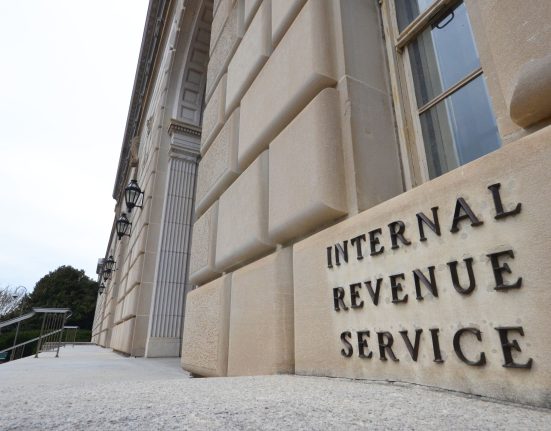The Texas Stock Exchange (TXSE) logo seen displayed on a smartphone (Photo Illustration by Budrul … More
The move toward lower and flatter personal income-tax rates is persisting as a dominant state policy trend in 2025.
Mississippi Governor Tate Reeves (R-Miss.) and Oklahoma Governor Kevin Stitt (R-Okla.) enacted legislation this spring to phase out their states’ income taxes in the coming years, while Governor Greg Gianforte (R-Mt.) signed into law the largest income-tax cut in Montana’s history. This year, however, state lawmakers have also made strides when it comes to reducing and repealing taxes on investment income.
In Missouri, for example, Governor Mike Kehoe (R-Mo.) is preparing to sign a bill passed by legislators in April that will eliminate Missouri’s capital gains tax.
“Once Gov. Mike Kehoe, who has reportedly expressed strong support for the idea, signs the bill, Missouri will become the first state in the nation to fully exempt profits from the sale of stocks, real estate, cryptocurrency, and other capital assets from state income tax,” Kiplinger reported in early May. “Proponents argue the move will encourage investment in The Show-Me State and potentially spur job creation and economic growth.”
“This legislation is about creating a fairer tax system that supports growth and empowers individuals to keep more of their hard-earned money,” said Missouri Speaker Pro Tem Chad Perkins (R). “I firmly believe this bill will have a great positive impact on our state’s economy and the financial well-being of our citizens.” Representative George Hruza (R), who cosponsored the capital gains repeal bill with Representative Perkins, said the move will “turbocharge Missouri’s economy.”
Days after Missouri lawmakers voted to repeal their capital gains tax, Governor Greg Abbott (R-Texas) approved a constitutional amendment that would prohibit the imposition of a capital gains tax in the Lone Star State. Texas, one of eight no-income-tax states, already has a constitutional prohibition on taxing wages.
“Voters will vote on this to ensure that we’re not going to have a capital gains tax in Texas,” Governor Abbott said on May 14 immediately after signing the joint resolution to refer the capital gains tax prohibition to the ballot. “The next tax law that I will sign will be a tax law to reduce your property taxes in Texas.”
Some See A Carried Interest Tax Hike As Part Of Larger Effort To Tax All Capital Gains At Higher Wage Income Rates
Recent developments in Texas and Missouri follow the completion in recent years of investment income tax phaseouts in Tennessee and New Hampshire. While state lawmakers have had success when it comes to improving the tax treatment of investment income, Republicans in Congress have faced pressure to raise federal tax rates on capital gains, namely in the form of a tax hike on what’s referred to as “carried interest.” Carried interest, a form of capital gain, refers to the share of a private equity fund’s return on investment that is paid out to fund managers.
The U.S. House passed a tax bill last week that will ensure the income tax rate cuts enacted as part of 2017’s Tax Cuts and Jobs Act (TCJA), which provided a net tax cut to the vast majority of households, do not expire at the end of the year. As the debate moves over to the Senate, President Donald Trump (R), Speaker Mike Johnson (R-La.), and congressional Republicans are saying they would like to enact the tax bill before the Fourth of July.
Despite pressure to “pay for” maintenance of current federal income tax rates with offsetting tax hikes, the House-passed budget reconciliation package does not raise taxes on carried interest. House Republicans’ rejection of calls for a carried interest tax hike is a relief to many of those who are concerned that such a tax hike, aside from direct adverse effects, would serve as the camel’s nose under the tent in a longer term effort to raise rates on all capital gains.
“Democrats not only want to tax capital gains at ordinary income tax rates—over 40% all-in federally—they want this tax rate to apply to phantom gains derived merely from price inflation,” says Ryan Ellis, president of the Center for a Free Economy and an IRS-enrolled agent in charge of a tax preparation firm. “It’s gets worse, as some of them even want to tax gains before they are gains, before an investor sells.”
Many progressives in Congress don’t like that capital gains are taxed at a lower rate than wage income. Though passing a capital gains tax increase would be a heavy lift even in a Democrat-led federal government, politicians on both sides of the aisle have expressed interest in singling out carried interest as special form of capital gain that should be taxed at a higher rate.
With the rising tide of populism, many Republicans across the country have increasingly taken to demonization of banks, hedge funds, private equity firms, and large companies in general. Yet, by targeting private equity with more punitive tax rates, Congress would end up harming the retirement plans for millions of public sector workers in nearly every state. In February, for example, the South Carolina Retirement System Investment Commission allocated $260 million to private equity funds.
Public pension investment in private equity is not unique to South Carolina or to only red states. In fact, public pension funds in most states have made similar investments in private equity. Governor Tim Walz (D-Minn.), for example, has 17% of Minnesota’s combined pension funds invested in private equity.
The belief that raising taxes on carried interest would be economically harmful is not limited to columnists, policy analysts, and those who work in private equity. It’s also shared by leaders on Capitol Hill and key members of the Trump administration.
“Private equity is growing our economy and boosting the retirement savings of working Americans,” said Senator Tommy Tuberville (R-Ala.). “Jacking up taxes on carried interest will kill the goose that laid the golden egg.”
Kevin Hassett, director of the White House National Economic Council, discussed the adverse effects that would come with a tax hike on carried interest in a 2010 policy brief for the American Enterprise Institute. In that brief, Hassett wrote that a tax hike on carried interest “would be unwise to adopt” and that “there is no compelling case that it will produce a more efficient allocation of capital.”
Many believe the Tax Cuts and Jobs Act took the right approach to carried interest. The TCJA did not raise the tax rate on carried interest, but increased the timeline for investment after which the capital gains tax rate would apply.
“President Trump’s tax law struck the right balance in 2017,” says Drew Maloney, president and CEO of the American Investment Council. “A new 40.8% tax rate would be higher than China, Europe and Canada and would make the U.S. less competitive.”
Critics of raising taxes on carried interest point out that higher tax rates on carried interest mean less capital to invest in the U.S., harming the overall economy. A 2022 Ernst & Young report estimated private equity’s entire contribution to the domestic economy:
“In total, the US private equity sector, the sector’s US suppliers, and the related US consumer spending supported an estimated 31.3 million workers earning $2.4 trillion in wages and benefits and generating $4.0 trillion in US GDP in 2022. PE-backed small businesses, their suppliers, and related consumer spending (i.e., a subset of this) together supported 4.4 million workers earning $360 billion in wages and benefits and generating $615 billion GDP. Additionally, the federal, state, and local taxes paid by, and related to, the US private equity sector totaled more than $700 billion in 2022.”
Sen. Tim Scott (R-S.C.), a member of the Finance Committee, said he is “excited about the future of private equity in South Carolina.” One thing that could curb that excitement is a tax hike on carried interest. Furthermore, for governors and legislators who have have been working hard to make their tax codes more conducive to investment, a federal tax hike on investment or wage income would counteract the benefits of pro-growth state reforms. Senator Scott and his colleagues, however, will soon have the opportunity to take federal tax threats off the table when they take up the House-passed tax bill.







